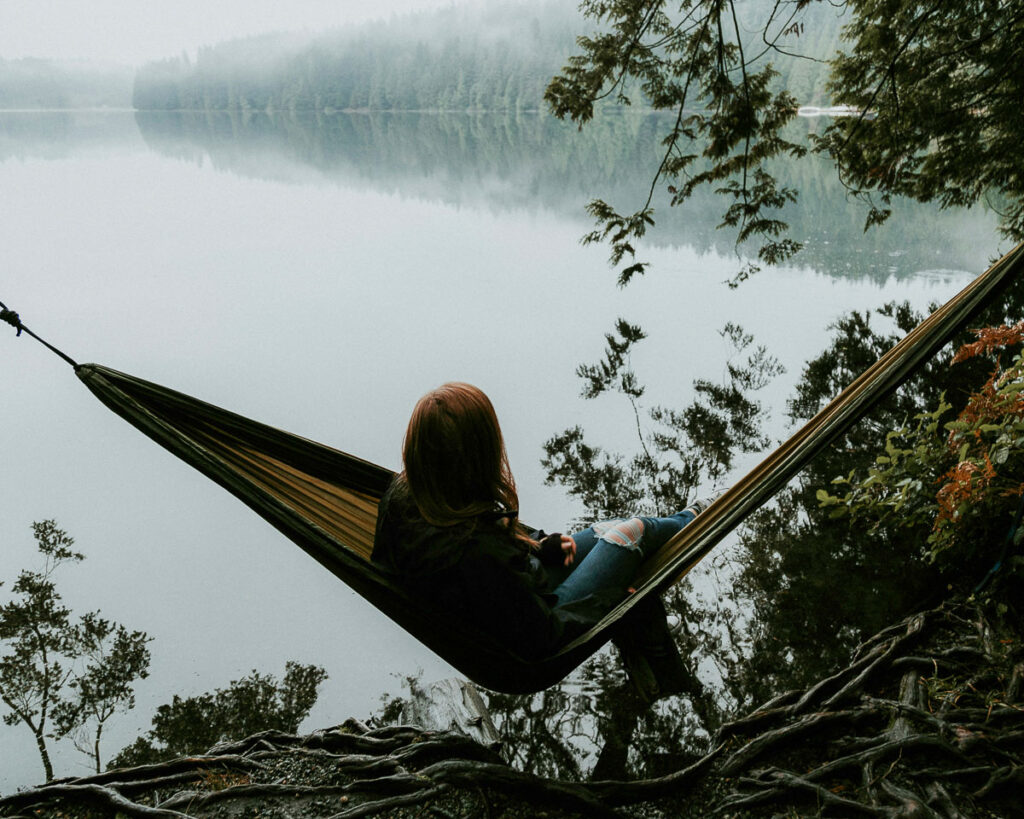Fluff the pillows, dim the lights, run the bath.
It’s time to step off the hamster wheel of hustle culture and discover the secrets of strategic rest.
Running yourself ragged seems to go hand in hand with freelance writing.
Like most of my colleagues, I’m no stranger to staying up late into the night, frantically tapping away to meet a punishing deadline or two.
Until recently, when my Gen Zer son, returning from a trivia night with mates, checked in on me.
“Why? WHY, Mum?”
I shrugged. “I don’t know. Just ‘cos.”
Step off the treadmill that’s keeping you busy … and broke
But, when I thought about it, I did know the answer.
When editorial word rates for freelance writers haven’t risen in more than 20 years, it’s easy to slip into a cycle of overwork just to keep the wolf from the door.
Figures presented by Bob Burton at The Business of Freelancing Webinar in 2022 suggest that just to meet a very conservative income target, you need to be earning $2685 per work week.
(This was calculated on the basis of a J5 Journalist Grade in the MEAA Enterprise Agreement with News Corp Australia Newspaper, with superannuation, annual leave, and other regular entitlements.)
How many thoroughly researched and well-written words can you write in a week?
Around 2000 to 2500 words per week is a reasonable estimate, Burton suggests.
This means you need to earn more than $1 per word.
The catch? Few publications pay $1 per word.
The majority pay around the $0.50 to $0.75 per word.
And some pay as little as $0.10, according to the MEAA Freelance Rate Tracker.
Hence, The Problem.
What we can learn about self-care and the soft life from Gen Zers
Much shade has been thrown at Gen Zers like my son (who also espouses something he calls ‘optimisation of effort’, which means doing a good enough, rather than thorough, job).
Gen Zers have variously been called “really annoying”, lazy, entitled, hypersensitive and disloyal.
They are also at the forefront of the ‘soft life’ movement which has overtaken TikTok, with 107.6 million posts at last count.
While there’s considerable debate over how it started and what it means, the ‘soft life’ seems (so far as this Gen Xer can tell) to be primarily about rejecting a life of high stress.
It’s a wholesale rejection of hustle culture.
It’s about tapping out from busyness and burnout.
And I’m starting to think it makes a lot of sense.
There’s also considerable science behind it. Recently, I stumbled on Alex Soojung-Kim Pang’s highly readable book Rest: Why you get more done when you work less (Penguin, 2016).
He claims that the way we view stress and overwork as badges of honour is a recent invention.
In examining the work habits of historical luminaries from Charles Darwin to Maya Angelou, he points out that most barely worked 4-5 hours a day, leaving plenty of time for naps, walks, meals, and other diversions.
He sees rest and work as two sides of the same coin.
It’s about cultivating a concept that Pang calls “deliberate rest”.
Deliberate rest is not the breakdown that comes when you’re completely burned out.
Rather, it’s scheduled, intentional periods of downtime – naps, hikes, baths, hobbies, and more.
These are just as important as work and act as a circuit breaker.
For the thing about being stuck on the treadmill is that it leaves you too depleted to consider alternatives to your current course of action.
These things might involve seeking out higher-paying rates, exploring different business models, doing fewer things for greater impact, or going after different kinds of work altogether. (More on this to come in subsequent posts.)
“Deliberate rest helps you recognise and avoid the trap of pointless busyness and concentrate instead on what’s important,” Pang writes.
Rest gives you the time and space to identify which mindset blocks might be hampering your progress.

The 5 other reasons why writers need to rest
Deliberate rest is especially important for writers, given that our work is inherently creative and demanding. It requires inspiration but sustained mental effort.
So, taking time out to rest is non-negotiable, Pang says.
Instead of pushing on and pushing through, rest is a must for anyone who wishes to maintain their productivity and creativity.
(1) Rest helps to restore energy
From a purely physical point of view, rest is a necessary counterpoint to work, Pang argues.
It lets the body repair and rejuvenate itself, allowing you to come back to your works in progress with renewed vigour.
Amid inevitable deadline pressure, rest also helps to regulate the body’s stress hormone, cortisol.
When elevated due to chronic stress, cortisol can lead to health issues such as weakened immune function and increased blood pressure which can cut a writing career short.
Rest doesn’t have to involve passively lying on the couch. It can be something called ‘active rest’.
For example, Japanese writer Haruki Murakami follows a strict routine that involves writing for several hours each morning, then devoting the rest of his day to swimming or running.
Physical exercise is a form of active rest that allows Murakami clear his mind and maintain his writing discipline.
Work and rest … are like different points on life’s wave. You can’t have a crest without a trough.
Alex Soojung-Kim Pang
(2) Rest gives the brain (and the muse) space to be spectacular
The resting brain isn’t idle.
When you’re daydreaming, or mind-wandering, or even engaged in repetitive automatic tasks like folding clothes, your brain automatically switches over to the default mode network (DMN).
The DMN is a collection of brain regions that keeps plugging away at problems even after you’ve downed tools.
The DMNs of people who score high on creativity tests differ from those of people who are average, with some regions of their resting brains lighting up with greater activity and connections.
“This research has revolutionised our understanding of what happens when we rest,” says Pang.
But you don’t need a brain scan to know whether the DMN is working for you. Anyone can harness the DMN to do the heavy lifting on their behalf.
All it requires is some time spent wrestling with a problem, followed by a break.
Both are necessary, but the break is the most important part.
We often resist taking a break when we’re stuck, but a break is what you need to get to the ‘aha’ moment.
The break provides space for novel solutions to rise to the surface.
(For more on the DMN and how it works, read Who are the girls in the basement?)
(3) Rest allows you to sprinkle joy on the page
Ever pulled an all-nighter?
Research shows that while many convergent and rule-based reasoning, decision making and planning tasks are relatively unaffected by sleep loss.
Yet, the creative, divergent, and innovative aspects of cognition are sorely affected.
And even if you’ve slept well, tunnel vision can easily close in after you’ve spent a long stretch in front of the laptop, going nowhere and getting frustrated.
Taking a break is good for your health and for providing the fresh perspective that leads to new ideas and new approaches.
(It’s also a great way of identifying promising new stories. Read Steal my five favourite ways to generate saleable story ideas.)
The boost in mood and emotional well-being that comes with rest and relaxation naturally translates to the page too.
Prioritising rest means ensuring your work is not just targeted, technically proficient, or ‘on brief’.
It will be filled with the sort of joy, creativity, playfulness and (dare I say it?) passion that really makes it resonate with readers.
(4) Rest refills the well of experience
Rest lets you refill your creative well, so it’s positively brimming with sensory input and interesting experiences that spark the imagination further.
In The Artist’s Way: A spiritual path to higher creativity, Julia Cameron recommends taking yourself out on an artist date once a week.
She believes that by intentionally scheduling time to participate in something intriguing, or fun, or fascinating, allows us to refill the creative reservoirs that might otherwise run dry.
I’ve taken myself out to art galleries, on nature walks, and even to an ikebana class for no other reason than I felt like it.
Taking an afternoon off to explore something new free of any intended outcome – so don’t set out to write a story about the exhibition or national park or ikebana class – can disrupt routine thought patterns.
It refuels and rejuvenates.
(Got more than an afternoon available? Read more about Why travel boosts your creativity.)
Research also supports the notion that engaging in varied experience can boost creativity and problem-solving skills, says Mihaly Csikszentmihalyi, who authored Creativity: The psychology of discovery and invention, and is sometimes described as the father of ‘flow states’.
The time to relax is when you don’t have time for it.
Sydney J. Harris

(5) Rest provides protection against burnout
When you’re constantly grinding to get ahead, taking time to rest can seem like an unaffordable luxury.
But failing to rest is a fast and guaranteed route to burnout – a common issue among writers.
In her book, Sacred Rest: Recover Your Life, Renew Your Energy, Restore Your Sanity, Saundra Dalton-Smith suggests we need seven different types of rest: physical, mental, spiritual, emotional, social, sensory, and creative.
This is why it takes more than a good night’s sleep or a weekend away to bounce back from burnout.
It’s about identifying the type of rest you most need – and replenishing those depleted stores.
(Read Eight ways travel writers can beat burnout.)
Pang suggests a range of research-backed strategies – such as scheduling deliberate rest into your calendar, going on long walks or engaging in other physical activity, pursuing hobbies, taking naps, prioritising good sleep at night, spending time in nature, and saying ‘no’ to commitments that drain your battery.
Doing so ensures you’re well-rested and ready to produce your best work.
When we take the right to rest, when we make rest fulfilling, and when we practice rest through our days and years, we also make our lives richer and more fulfilling.
Alex Soojung-Kim Pang
What’s your favourite way to rest? Let me know in the comments.
While you’re here … Want to make pitching your story ideas to editors a less effortful and time-consuming process? Join the waitlist for the course I’m developing on that very subject. In the meantime, you’ll receive a copy of Pitching for Publication which deconstructs my successful pitches to three different publications.
